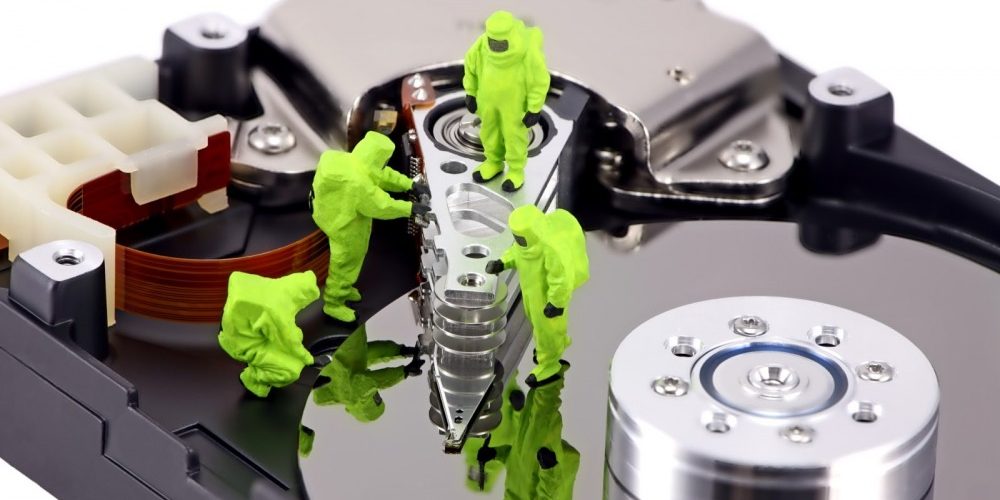Often a Personal Computer accompanies us in life through dark years and happy years, ending up becoming our magic eye on the world, an extension of our mind: a treasure chest where we record and preserve our experiences in the form of writings, images, videos and documents. The prospect of data “loss” is obviously depressing for private users, even more so in the case of business machines, translating into colossal disasters: this article is meant to be a brief guide to backupknowledge, and to existing backup solutions.
First of all, it is good to know that each hard disk, HDD (Hard Disk Drive) or SSD (Solid State Drive) has an “expiration” determined by various factors. The average lifespan of a good HDD – composed of moving mechanical parts and subject to wear and tear – is about ten years; that of an SSD – although it is not easily quantifiable, as it depends substantially on the workload and temperatures to which it is exposed – a few years more. But the treacherous truth is that, beyond various statistics (experience docet) an SSD could last just 2 months and an HDD 15 years… or vice versa! This is because, in addition to taking into account potential factory defects that can cause the premature and sudden death of the instrument, there are a whole series of external accidents that can irreparably damage a disk: falls, liquid spills, power surges, etc.. The message, therefore, is one and unequivocal: if you care about your data, you should back them up… always! Therefore, here are the three main categories in order to better orient ourselves according to the type of data we want to safeguard.
- Full backup: with this method all data, configurations, the operating system and programs on the computer are saved. The process is very slow, but is done in its entirety only once, which is the first time.
- Differential backup: saves the data changed since the first backup in each session. Slow archiving process, fast recovery.
- Incremental backup: saves only data that has changed since the previous incremental backup. The procedure, of course, is much faster when compared to the fulland differential. However, you will need the entire set of previous incremental backups in order to proceed with the recovery, which will therefore be done slowly.
The media in which to store data, on the other hand, fall into two categories.
- External and dedicated media: DVDs, USB sticks, Servers, NAS, external disks, tape backups, etc. For the private user, in most cases it will be sufficient to purchase an external USB disk on which to perform the backup via the Windows proprietary guided system. For companies, however, due to the large amount of data to be managed, it will be advisable to equip themselves with a Server or NAS – Network Attached Storage: multi-disk system equipped with various functions, including storage and sharing of content on the local network and a professional software dedicated to backup. In the event that the company does not have the skills to create a complete and secure backup plan on its own, it will necessarily have to turn to someone who, in addition to providing the software, will manage it using experienced and certified personnel. In order to verify the quality of a backup product and service offering, therefore, it will be necessary to make sure that the package includes constant monitoring that can guarantee the success of the processes, restoration speed in step with the most modern requirements and, finally, the usability of all recovered data. The advantages enjoyed by employing external, dedicated media consist of several factors.
- You have full control over your business data.
- There are ratified safety standards.
- The physical location of the hardware is known and, as a result, it will be possible to monitor the quality, frequency and timing of maintenance carried out by your own IT staff or by the company that provided the service.
- The infrastructure can be customized and implemented at will, and integration with local peripherals is quick and easy.
- Cloud back up services: allow the storage and preservation of data on the network within multiple virtual servers hosted on third party facilities or dedicated servers. These services are pay-as-you-go (usually an annual fee) and an internet connection is required to use them. Here are the main benefits.
- Savings in initial purchase, management/maintenance and “scrap” costs that would be incurred by using proprietary hardware and software.
- As all data is centralized, and subject to established centralized security policies, it is impossible for leaks to occur due to physical removal of IT from the business. In the same way, the data is safe from any kind of accidental damage (shock, fire, etc.).
- When the cloud service provider provides it, you will benefit from Disaster Recovery plans that will secure your stored content from any data center issues.
Having established the importance of carrying out regular backups both in the private and corporate field, if in the first case we can be “satisfied” with software solutions integrated in the operating system and hardware equipment with low performance and costs, in the context of a company we have seen that the issue will be more delicate and complex. There are different types of backups and professional media on the market, and the selection of these tools should be done very carefully evaluating the potential advantages and disadvantages for your business.
Marcello Argenti


At IT solution, we are ready to guide you to the alternative that best suits your needs, providing all the monitoring and assistance you need to keep your data safe. We are also authorized and certified resellers of the Acronis and Veeam brands, two of the best software manufacturers dedicated to professional backup solutions.

